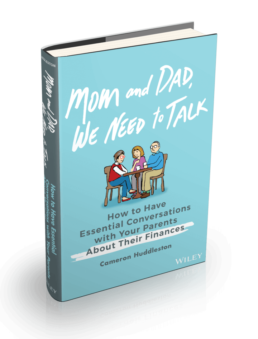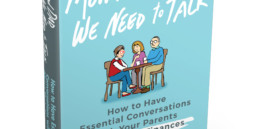I remember the moment when it became painfully obvious to me that my mom was losing her memory.
There had been subtle signs for several months – maybe longer. It was easy to attribute those early indications that something was off to my mom’s hearing loss in her left ear. However, there was no question that my mom was in the early stage of dementia when she did something one evening that still stands out in my mind as if it were yesterday.
We were sitting in her living room, and she asked if I wanted to go to the patio to see a new bench she had bought. We went outside, looked at the bench then came back in and started talking. Within a few minutes, my mom asked if I wanted to see her new bench. She had already forgotten that we had just seen it.
I went home that night and cried.
Many months passed before my mom saw a neurologist, who – to my surprise – said her memory was fine (or, perhaps, my mom just lied and said she was OK). Several more months passed before one of my mom’s friends persuaded her to see another neurologist. That time, I went with my mom to her appointment to learn the results of her tests.
The doctor said what I already knew: My mom had Alzheimer’s disease. That was in 2008, and she was 65 years old.
On average, a person lives four to eight years after an Alzheimer’s diagnosis. It’s been 12 years since my mom was diagnosed, so her decline has been gradual. That hasn’t made it easier, though. I have watched as Alzheimer’s has slowly robbed my mom of her memory and the person she once was.
It has been long and painful.
I have watched as Alzheimer’s has slowly robbed my mom of her memory and the person she once was. It has been long and painful.
The early stage
There are three stages of Alzheimer’s disease: early (mild), middle (moderate) and late (severe). When my mom was diagnosed, she was well into the early stage of the disease. However, you’d never know just by having a casual conversation with her that anything was wrong.
She socialized with her friends, went to book club meetings and traveled occasionally with the man she had been dating. She played with my two young daughters. She was living on her own and taking care of herself.
While it appeared to most of my mom’s friends that she could function independently, I could see signs that she was struggling. She had expired food in the refrigerator and could no longer follow a recipe. She had lots of reminder notes written in her calendar and on scraps of paper. She didn’t clean her house as often, and my husband had to mow the lawn for her. Solicitations from organizations filled my mom’s mailbox, and she wrote checks to most, if not all, of them.
I learned quickly not to point out that she was forgetting things. That just upset my mom and put her on the defensive. And I had to be careful not to make it seem like I was taking her independence away from her as I slowly got involved with her finances. If I pushed too hard, she would push back.
Instead, I took a more discreet approach. I monitored her bank account online. I sorted her mail to intercept the donation requests and sweepstakes entry forms. I took several of the credit cards from her wallet when she wasn’t looking so they wouldn’t be lost, stolen or used to make payments over the phone when telemarketers called.
However, I had no choice but to take the car keys away from my mom when I got a call from one of her friends telling me that my mom was getting confused when driving home at night from book club meetings. I hired a young woman to drive her on errands. Then I replaced her with a woman closer to my mom’s age to keep her company and keep an eye on her a few days each week.
The real wake-up call that my mom could no longer be left alone at all was when I got a call from my uncle telling me my mom had asked him how to wire money. I rushed over to her house and discovered that a scammer had been calling her and telling her she had to wire hundreds of dollars to claim a large cash prize. She couldn’t believe that it was a scam. So I stayed at her house that day to intercept the calls she kept getting.
At that point, it had been about a year since my mom’s Alzheimer’s diagnosis. I realized my patchwork approach to helping her wasn’t enough. So I persuaded my mom to move in with my family. Of course, she was reluctant to give up her independence, her home and her garden that she loved. But, I suppose, that she realized deep down that she couldn’t be on her own anymore.
The middle stage
I was fortunate that my home had two apartments. We rented out one of them and moved my mom into the other. Because she had her own space, she didn’t feel like she was giving up her independence entirely — even though she depended heavily on me for help.
Every morning, I went to her apartment to make sure she ate breakfast and to give her the medicines she was taking for Alzheimer’s disease and high blood pressure. Each weekday, I had paid caregivers stay with her while I worked. Every night, she ate dinner with my family, or I took a meal to her. On the weekends, I juggled caring for my mom and my two daughters. It was exhausting, to say the least.
My mom grew increasingly frustrated as she struggled to remember things. She became reluctant to bathe. And as she became more dependent on me for help, the role reversal put a strain on our relationship.
During that time, I had my third child. My mom already had trouble remembering my two daughters’ names. Adding my son into the mix just seemed to confuse her even more. She often seemed surprised that there was a baby in the house and had to be reminded of his name and that he was a boy. I was too scared to even let her hold him. Fortunately, she never asked.
As her Alzheimer’s progressed, I realized that I couldn’t continue to provide the care she needed – even with the help of caregivers. I was afraid she would fall in the middle of the night because my husband and I frequently would be awakened by the sounds of her pacing in her room above us. I was worried she would wander off and get lost if no one was with her. I feared for my own family’s safety when she left a tea kettle on the stove unattended and could have burnt down the house.
So I decided that, after about two years of living with my family, it was time for my mom to move to a memory care facility where she could get round-the-clock, professional care. I discussed my idea with her several times, but she would quickly forget those conversations. Fortunately, when I moved her to the facility I chose, she settled right in and started making friends.
I remember the moment it became clear my mom didn’t know who I was.
That was in late 2011. My mom didn’t decline much over the next few years. However, there was a dramatic shift in 2015 after she fell, fractured her hip and had surgery. My outgoing, cheerful mom became withdrawn. She often wouldn’t make eye contact with me when I visited and seemed annoyed by my presence. Then, she stopped recognizing me.
I remember the moment it became clear my mom didn’t know who I was. I had taken her to a Thanksgiving meal at her brother’s house. During a conversation, I addressed her as “Mom.” She looked at me puzzled and said, “I’m not your mom.”
It was difficult hearing those words. But there have been much harder things I’ve had to deal with over the past few years as she has slipped into the late, severe stage of Alzheimer’s disease.
The late stage
In 2016, I moved my mom to another memory care facility that was closer to me and more affordable ($4,500 a month for a private room versus more than $6,000 for a room with a shared bathroom). At that point, she was so unaware of her surroundings that she didn’t even seem to notice she was in a new place.
Since she has been in her current facility, my mom hasn’t been capable of having conversations. She’ll comment on her surroundings or people she interacts with – things like, “It’s cold. You’re pretty. She’s nice.” For the most part, though, she just talks to herself. But even her monologues have become less intelligible over the past year as more and more real words are replaced with gibberish.
The only time she speaks clearly now is when she is in pain or is forced to do something she doesn’t want to do. That’s also when her easy-going personality disappears. It’s like a switch has been flipped. A couple years ago, when I took her to a doctor’s appointment, she became agitated when a nurse tried to take her blood pressure. She then refused to let the doctor examine her. However, when it came time to leave, she didn’t want to go. A nurse had to help me get her to the car, where she stood for at least 10 minutes shouting that she wouldn’t go with me.
I’ve never felt more helpless in my life. I thought I was going to have to call 911 to have paramedics restrain her and transport her back to her memory care facility. Fortunately, the nurse got my mom to cooperate and get in my car.
A year ago when my mom had to get surgery to remove a cancerous growth, I had to hold her arms in the recovery room to prevent her from yanking her IV out. She called me names. She tried to hit and bite me. I was only trying to help her, but my mom thought I was trying to hurt her.
However, she still has moments of clarity that make me wonder what really is going on inside her head. During one of my regular visits with her last winter, my mom said she was tired as we were walking around her facility. So I took her to her room and helped her lie down on her bed. She looked at me and said, “Thank you. I appreciate everything that you do. I can always see the love in you.”
Those words give me hope that, maybe on some level, my mom still recognizes me and knows that I love her. I hold them close to my heart because I know she doesn’t have much time left.
Her cancer has returned and spread. Her doctor, my sister and I decided that chemotherapy and radiation just don’t make sense with my mom in this late stage of Alzheimer’s disease. Fortunately, she’s not in any pain now.
My hope is that my mom is spared of any suffering. With all that she has been through, that’s the least she deserves. And with all that I’ve been through watching Alzheimer’s slowly take my mom from me, I’m not sure I could handle it getting any worse.
Don't Miss Out! ORDER NOW!
"An excellent step-by-step guide to navigate what can be time-consuming, uncomfortable conversations."
- Michelle Singletary, The Washington Post
Related Posts
May 15, 2019
Generation X: It’s Not Too Late to Take Control of Your Finances
Here's how to shake your slacker status…
April 28, 2019
My Biggest Money Regret: Not Talking to My Mom Soon Enough About Her Finances
I learned the hard way that family…

Cameron Huddleston
I am the author of Mom and Dad, We Need to Talk: How to Have Essential Conversations With Your Parents About Their Finances. I also am an award-winning journalist with 20 years of experience writing about personal finance. My work has appeared in Kiplinger’s Personal Finance, Forbes.com, Yahoo!, MSN, and other online and print publications.





[…] What It’s Really Like When Your Parent Has Alzheimer’s Disease Cameron […]
[…] Huddleston recently wrote an important blog post sharing her experience over the past decade, What It’s Really Like When Your Parent Has Alzheimer’s Disease. […]